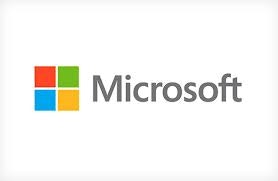
The company whiffed on earnings, as consumers abandoned Microsoft’s Windows operating system.
Can Microsoft Corporation (NASDAQ:MSFT) survive in a post-Windows era?
Microsoft admits it: The traditional PC is struggling
Some companies (The Coca-Cola Company (NYSE:KO), Google Inc (NASDAQ:GOOG)) have blamed the weather for their recent struggles. But not Microsoft. To its credit, the Redmond tech giant was fairly upfront with what’s causing its problems.
On the earnings call, Microsoft Corporation (NASDAQ:MSFT) admitted that traditional PC form factors, Windows’ home turf, are in a state of terminal decline. Demand among business users was up only moderately, and by Microsoft’s own estimates, consumer demand declined by over 20%.
That it isn’t to say that Microsoft is ready to abandon Windows — far from it. Management still believes Windows has a future. I disagree.
How Microsoft plans to save Windows
To rejuvenate Windows, Microsoft Corporation (NASDAQ:MSFT) has undertaken a few initiatives.
For starters, it cut the price of its Surface RT tablet by 30%. There is now a $150 difference between Microsoft’s tablet and Apple’s competing iPad. In theory, that could help to save the Windows RT platform.
For Windows 8, Microsoft Corporation (NASDAQ:MSFT) has rolled out an update that brings back the start button. It also partnered with its OEMs to reduce the cost of full Windows 8 tablets. Asus, for example, sells a tablet that’s less than $500, but runs full Windows 8.
It isn’t going to work
But, these moves aren’t going to change anything. Microsoft’s mobile strategy has been a complete disaster.
The company had to take a $900 million writedown on its Surface RT tablet. It should’ve never expected to sell many in the first place.
The Windows RT platform suffers from a severe lack of mobile apps. Even Facebook Inc (NASDAQ:FB) has not bothered to put an official app on the platform, only now preparing to launch one nine months after the platform was rolled out.
At the same time, even $350 is too much for a tablet. Apple’s iPad Mini retails for $330 and sells more than the full-size iPad, while other popular tablets like the Nexus 7 and Kindle Fire HD start at under $300.
Moreover, full Windows 8 on a tablet isn’t necessary for most people. The advantage in having full Windows 8 is that a user can run just about any PC software developed in the last 15 years — but why would they?
Old software has not been optimized for tablet use, and the cheap Windows 8 tablets use weak Intel Corporation (NASDAQ:INTC) ATOM processors incapable of replicating the full desktop or laptop experience.
Gartner expects demand for these hybrid tablets (what it calls “ultramobiles”) to increase in the coming years, but believes demand will remain below 100 million units even four years out. That makes sense — having legacy software on a tablet should appeal to a select group of users, but for most, it won’t be worth the trade offs (battery life, raw power, etc).
Google will be the new king of the operating system market
Google Inc (NASDAQ:GOOG) looks set to take the crown from Microsoft as the world’s dominant operating system provider. By giving Android away for free, Google has been able to conqueror the mobile operating system market.
Gartner expects Android to have largely supplanted Windows by 2017. Given the current trends, that prediction looks likely to come true.
In many ways, it’s reminiscent of what Microsoft did to Netscape in the mid 1990s. For a few years, Netscape was the premiere Internet browser. Then, Microsoft Corporation (NASDAQ:MSFT) introduced Internet Explorer, and Netscape crumbled.
Microsoft displaced Netscape by giving Internet Explorer away for free. Nowadays, it seems insane to pay for a mobile browser — but back then, Netscape cost money. Perhaps, years from now, people will think the same thing about operating systems, wondering how anyone could ever be willing to pay for them.





